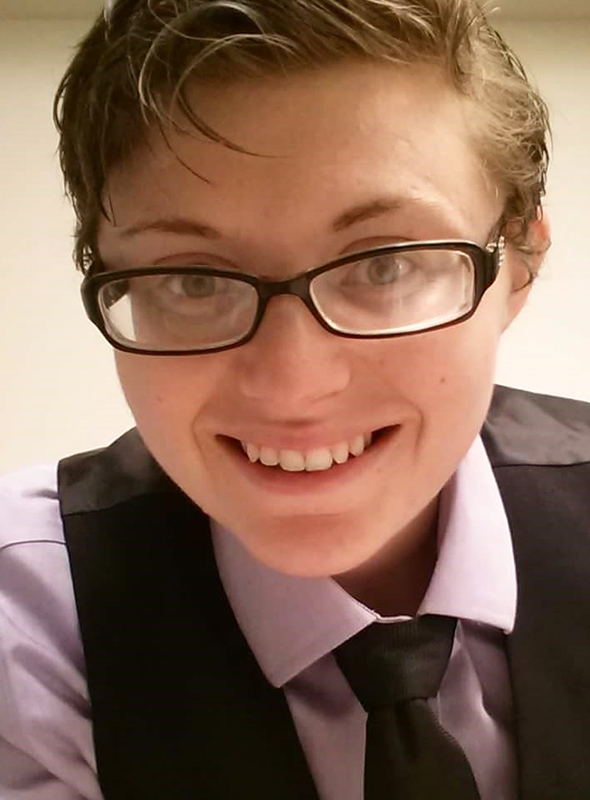Amanda’s story
Amanda Loucks
I attended an evangelical Christian college. I also happen to be gay. During college, my journey to try to reconcile my faith with my sexual orientation nearly cost me my life. While many told me conversion therapy would bring me closer to God, attempts to change my sexual orientation led to an eating disorder, and I became suicidal.
Growing up I was close with my family, but we struggled financially. Church became a free and safe place to hang out with adults and kids my age. As the church became my second family, it also shaped my worldview. So at 17, when I realized I was attracted to girls, I panicked. It was the first time I felt like I didn’t fit in the church I loved.
I told our pastor my secret. He said, “This is wrong, but you can be cured. We’ll get through this together.” I believed him.
He placed me in a peer “accountability group” to share our “struggles” and become better Christians. It was here I was first exposed to the now defunct Exodus International, and the world of conversion therapy.
Sometimes called “ex-gay therapy,” conversion therapy attempts to change a person’s sexual orientation or gender identity. According to the National Center for Lesbian Rights, conversion therapy can happen anywhere, in any part of the country, and in any setting — from a therapist’s office to a church group.
I soon decided to attend Central Christian College of the Bible in Moberly, Mo., on a full tuition scholarship, at the advice of my pastor.
I didn’t tell anyone on campus about my struggles, but for the first two years I attended weekly conversion therapy sessions with a Christian counselor in Columbia, Mo. The summer before my senior year of college, I offered to house a prospective student for an overnight stay. Following her campus tour, we watched a movie in my dorm room. Then we kissed. The moment was magical, but because of what I was taught, I also felt so guilty.
I confessed what had happened to the Dean of Women.
I was almost immediately stripped of my campus leadership positions. To make matters worse, they put me on probation. Once, I was written up for putting my hand on a friend’s back during a prayer circle, consoling her for a death in the family.
My college then began requiring me to attend weekly sessions with a counselor on campus, who provided me with “feminine training” from two women — one older and one younger — in separate sessions once a week.
My sessions with the older woman focused on becoming a “proper woman.” I was told to become more submissive. I remember her saying, “It’s really a blessing we took you out of your leadership roles so guys will be more attracted to you.” The younger woman focused on changing my physical appearance through feminine clothing and makeup. I soon developed an eating disorder: I don’t have a choice in attending these sessions, I thought, but at least I can control what I eat and throw up.
My senior year was a blur. I was constantly threatened with expulsion and felt like wasted space.
Following graduation, I was excited to do mission work in Australia. But I was fired the day I arrived in Australia because a student had alerted the mission about my struggles. Instead, I returned to live with my parents in California.
Feeling I’d hit rock bottom, I called my friend Hali. I told her that I wanted to die by suicide. It was then she told me about a group of people I should meet who believed same-sex relationships could be godly. She convinced me to stay with her in Michigan.
Through Hali I found the Q Christian Fellowship. And the more I engaged with affirming Christians, the more I realized there was no way I could go back to the toxic conversion therapy that defined my college years.
In August 2014, I was rushed to the hospital after a car accident and sustained a traumatic brain injury with a broken neck, pelvis, and ribs. I spent a month and a half in the hospital and a year in physical therapy.
But I also gained a renewed sense of purpose at my second chance at life. I began working with NCLR’s Born Perfect campaign, to end conversion therapy. To date, 14 states and Washington, D.C. have laws prohibiting conversion therapy for minors. And the fight continues.
We are all born perfect.
It’s taken me so long to get here, but I finally feel like I’m enough.
This piece originally appeared in The Advocate on August 9, 2018.

